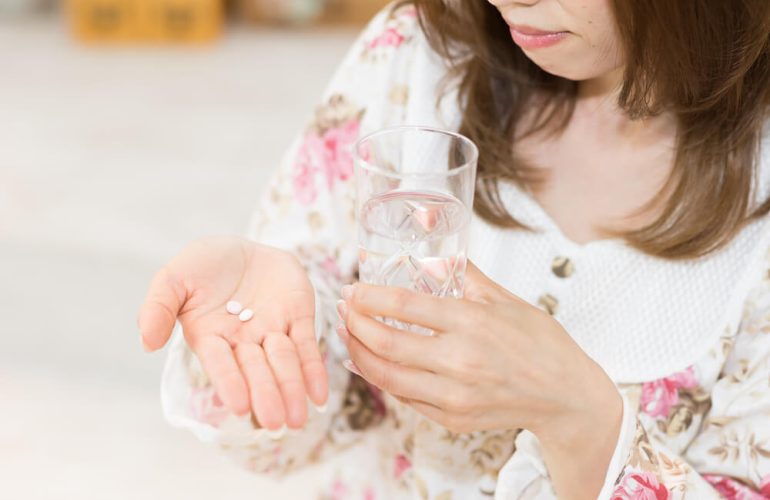Who is Eligible for IVF Treatment Understanding the Criteria for Treatment
In vitro fertilization (IVF) is a widely used assisted reproductive technology that has helped many couples and individuals achieve their dream of having a baby. However, not everyone is a suitable candidate for IVF treatment. Several factors are taken into consideration to determine eligibility for this procedure.
Age:
One of the primary factors in determining eligibility for IVF treatment is the age of the individual or couple seeking the procedure. Generally, IVF is more successful in women under the age of 35. As a woman ages, her fertility declines, and the chances of successful conception decrease. However, advanced age does not necessarily exclude someone from undergoing IVF, as each case is unique and should be assessed by a fertility specialist.
Fertility Issues:
IVF is commonly recommended for individuals or couples facing certain fertility challenges, including:
Blocked or damaged fallopian tubes:
IVF bypasses the need for fallopian tubes by fertilizing the eggs outside the body.Low sperm count or poor sperm motility:
IVF can involve the use of intracytoplasmic sperm injection (ICSI), which allows for the direct injection of sperm into the egg.
Ovulation disorders:
IVF can be used in conjunction with hormonal medications to stimulate ovulation.
Endometriosis:
IVF may be recommended if other treatments have not been successful in achieving pregnancy.
Unexplained infertility: When the cause of infertility cannot be identified, IVF can be an effective option.
Medical Conditions:
Certain medical conditions may affect an individual’s or couple’s eligibility for IVF treatment. These conditions may include:
Polycystic ovary syndrome (PCOS):
IVF can be a suitable option for individuals with PCOS who have not responded to other fertility treatments.
Genetic disorders:
In cases where there is a high risk of passing on a genetic disorder to offspring, IVF can be used in conjunction with preimplantation genetic testing (PGT) to select embryos free of the genetic condition.
Cancer or chemotherapy: IVF can offer fertility preservation options for individuals undergoing cancer treatment that may affect their fertility.
Lifestyle Factors:
Certain lifestyle factors may influence the eligibility for IVF treatment. These factors can include:
Body mass index (BMI):
Obesity or being significantly underweight can impact the success of IVF treatment. Achieving a healthy BMI range is often recommended before undergoing IVF.
Smoking and alcohol consumption: Smoking and excessive alcohol consumption can have detrimental effects on fertility and the success of IVF. Quitting smoking and reducing alcohol intake are advisable before undergoing treatment.
Substance abuse:
Individuals with substance abuse issues may need to address these concerns before considering IVF treatment.
It’s important to note that eligibility for IVF treatment is assessed on a case-by-case basis. Consulting with a fertility specialist is crucial to determine whether IVF is a suitable option and to address any specific concerns or conditions.
What to Expect During the In Vitro Fertilization (IVF) Process
Ovarian Stimulation:
The first stage of the IVF process involves ovarian stimulation. Typically, women produce one egg per menstrual cycle. However, in IVF, multiple eggs are desired to increase the chances of successful fertilization. Fertility medications, such as injectable hormones, are administered to stimulate the ovaries to produce multiple eggs. During this stage, your fertility specialist will closely monitor your hormone levels and perform ultrasound scans to assess the growth and development of the follicles (fluid-filled sacs containing eggs).
Egg Retrieval:
Once the follicles have reached the desired size, an egg retrieval procedure is scheduled. This is usually done under light sedation or anesthesia to minimize discomfort. A thin needle is inserted into each follicle through the vaginal wall, and the fluid containing the eggs is aspirated. The eggs are then immediately transferred to the laboratory for fertilization.
Sperm Collection and Preparation:
On the same day as the egg retrieval, a sperm sample is collected from the male partner or a donor. The sperm sample is prepared in the laboratory through a process called sperm washing. This involves separating the healthy, motile sperm from the semen.
Fertilization:
The next stage of the IVF process is fertilization. There are two primary methods for fertilizing the eggs:
Conventional IVF:
In this method, the prepared sperm is combined with the collected eggs in a laboratory dish. They are then left overnight to allow fertilization to occur naturally.
Intracytoplasmic Sperm Injection (ICSI):
If there are any concerns about the quality or quantity of sperm, or if previous fertilization attempts have been unsuccessful, ICSI may be recommended. This technique involves injecting a single sperm directly into each mature egg using a fine needle.
Following fertilization, the eggs are monitored closely for signs of successful fertilization, which can be observed through the presence of two pronuclei (genetic material from both the sperm and egg).
Embryo Development:
Over the next few days, the fertilized eggs (embryos) are monitored as they develop. The embryos are typically cultured in a laboratory incubator under controlled conditions. The development and quality of the embryos are assessed, and the best-quality embryos are selected for transfer.
Embryo Transfer:
The embryo transfer is the final stage of the IVF process. It is a relatively simple and painless procedure that does not require anesthesia. A thin catheter is gently inserted through the cervix and into the uterus, and the selected embryos are carefully transferred. The number of embryos transferred is usually discussed and decided upon with your fertility specialist based on factors such as your age and the quality of the embryos. Any remaining high-quality embryos can be cryopreserved (frozen) for future use.
Post-Transfer Care and Pregnancy Test:
After the embryo transfer, you will be advised to rest for a short period before resuming normal activities. Approximately 10 to 14 days after the transfer, a blood test or home pregnancy test is performed to determine if the procedure was successful and if you are pregnant.
It’s important to remember that the IVF process can vary from person to person, and individual circumstances may require additional steps or adjustments. Close communication with your fertility specialist and their team is essential throughout the entire process to ensure that you receive personalized care and support.
IVF process involves stages such as ovarian stimulation, egg retrieval, sperm collection and preparation, fertilization, embryo development, embryo transfer, and post-transfer care. By understanding the step-by-step guide to IVF treatment, you can approach the process with greater knowledge and confidence, knowing what to expect at each stage.




